第21章 IX BOOKSELLERS AND PRINTERS, OLD AND NEW(3)
The so-called Wicked Bible is a book that is seldom met with, and, therefore, in great demand. It was printed in the time of Charles I., and it is notorious because it omits the adverb ``not'' in its version of the seventh commandment; the printers were fined a large sum for this gross error. Six copies of the Wicked Bible are known to be in existence. At one time the late James Lenox had two copies; in his interesting memoirs Henry Stevens tells how he picked up one copy in Paris for fifty guineas.
Rabelais' printer got the satirical doctor into deep water for printing asne for ame; the council of the Sorbonne took the matter up and asked Francis I. to prosecute Rabelais for heresy;this the king declined to do, and Rabelais proceeded forthwith to torment the council for having founded a charge of heresy upon a printer's blunder.
Once upon a time the Foulis printing establishment at Glasgow determined to print a perfect Horace; accordingly the proof sheets were hung up at the gates of the university, and a sum of money was paid for every error detected.
Notwithstanding these precautions the edition had six uncorrected errors in it when it was finally published. Disraeli says that the so-called Pearl Bible had six thousand errata! The works of Picus of Mirandula, Strasburg, 1507, gave a list of errata covering fifteen folio pages, and a worse case is that of ``Missae ac Missalis Anatomia'' (1561), a volume of one hundred and seventy-two pages, fifteen of which are devoted to the errata. The author of the Missae felt so deeply aggrieved by this array of blunders that he made a public explanation to the effect that the devil himself stole the manuscript, tampered with it, and then actually compelled the printer to misread it.
I am not sure that this ingenious explanation did not give origin to the term of ``printer's devil.''
It is frightful to think What nonsense sometimes They make of one's sense And, what's worse, of one's rhymes.
It was only last week, In my ode upon spring, Which I meant to have made A most beautiful thing, When I talked of the dewdrops From freshly blown roses, The nasty things made it From freshly blown noses.
We can fancy Richard Porson's rage (for Porson was of violent temper) when, having written the statement that ``the crowd rent the air with their shouts,'' his printer made the line read ``the crowd rent the air with their snouts.'' However, this error was a natural one, since it occurs in the ``Catechism of the Swinish Multitude. ``Royalty only are privileged when it comes to the matter of blundering. When Louis XIV. was a boy he one day spoke of ``un carosse''; he should have said ``une carosse,'' but he was king, and having changed the gender of carosse the change was accepted, and unto this day carosse is masculine.
That errors should occur in newspapers is not remarkable, for much of the work in a newspaper office is done hastily. Yet some of these errors are very amusing. I remember to have read in a Berlin newspaper a number of years ago that ``Prince Bismarck is trying to keep up honest and straightforward relations with all the girls'' (madchen).
This statement seemed incomprehensible until it transpired that the word ``madchen'' was in this instance a misprint for ``machten,'' a word meaning all the European powers.